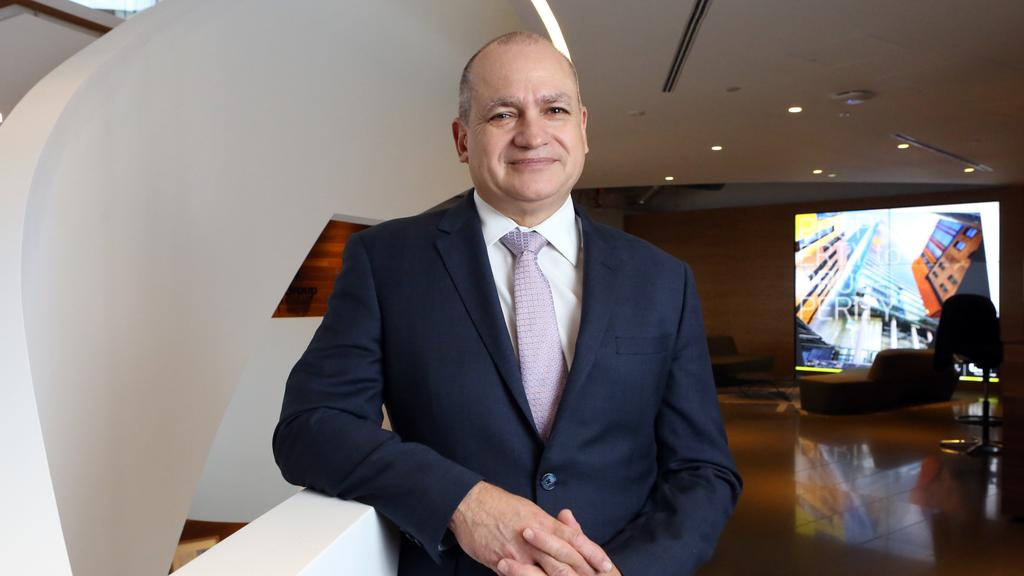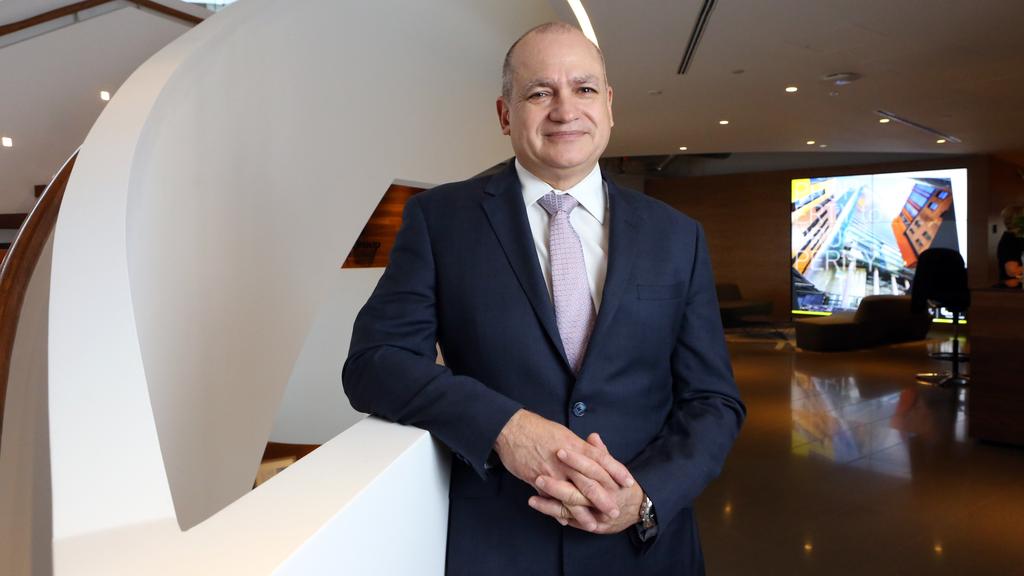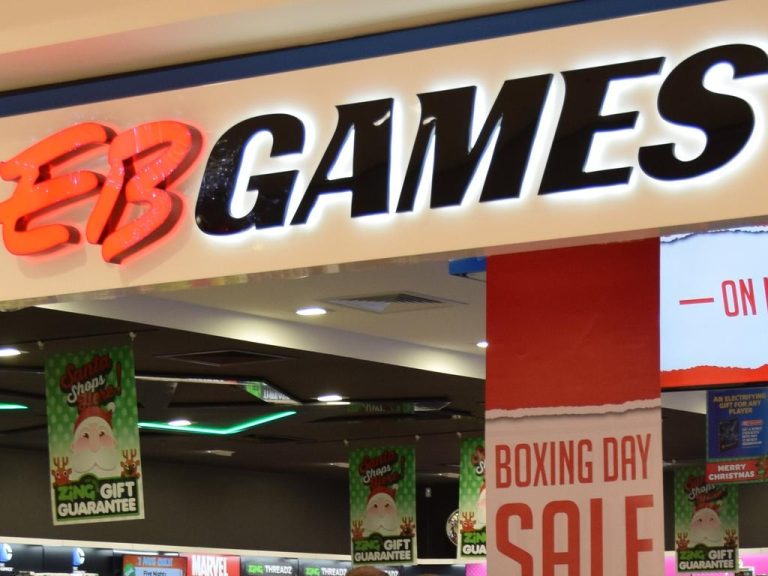GPT dumps guidance as malls take Covid earnings hit

GPT chief executive Bob Johnston. Picture: James Croucher
Diversified shopping mall owner GPT Group has sounded a warning to corporate Australia that the sweeping economic fallout from the extended lockdown in NSW will crunch earnings for the remainder of the year.
The landlord’s woes reflect growing concern among retailers, travel companies, developers and small businesses that they cannot withstand an extended lockdown that would crunch revenues and leave them too weak to fully recover.
The comments are expected to set the tone for the upcoming profit reporting season with Covid vulnerable industries expected to issue downbeat earnings outlook.
The $9bn GPT, which has large exposure to suburban shopping malls, blamed the restrictions that state governments have imposed as it dumped its earnings guidance, with other big mall owners coming under pressure as retailers seek rent relief.
GPT owns big centres in Sydney, including Rouse Hill Town Centre and a stake in Westfield Penrith, while other landlords like Scentre Group, which runs the local Westfield empire, and Vicinity Centres, are also exposed.
Investors were rattled, driving GPT shares down by 2.7 per cent on Monday and other major trusts that specialise in big malls are down by about 10 per cent over a month.
The company blamed uncertainty over the duration and impacts of measures being implemented to suppress the spread of Covid-19 in both Sydney and in Melbourne, but the whole industry is under stress as more centres are listed as exposure sites.
GPT chief executive Bob Johnston said that in line with strengthening economic conditions, the company had seen a strong recovery across its retail portfolio during the course of the first six months of this year. But the tough rules to stop the pandemic have stalled the industry.
“However, given the recent restrictions in both Sydney and Melbourne and the uncertainty as to when these restrictions will be lifted and the ongoing risk of additional measures, we believe it is prudent to withdraw Funds From Operations and distribution guidance for the full year,” he said.
Banks are also in the firing line as their business customers feel the pinch from lockdowns and close up shop, with the NAB writing to customers who have lost income and are in financial difficulty.

Bob Johnston, the CEO of diversified shopping mall owner GPT. Picture: James Croucher
NAB chief executive Ross McEwan said that financial support was available including temporarily reducing payments on loans or credit cards, payment breaks, consolidating debt and waiving fees and charges to withdraw term deposits early.
The bank chief said that “vaccinations are our way out” and has joined the ranks of companies encouraging staff to get jabbed, but the measures will slice into revenues.
The woes of the large companies hit by NSW lockdowns are spilling over to the lowering economic forecasts across the nation.
As NSW recorded 145 new virus cases on Monday Premier Gladys Berejiklian told reporters that “settings might change” on July 31, sparking hope for some NSW residents in lockdown.
The NSW Premier said she “doesn’t want to rule out” updated restrictions on Friday, as her government looks to potentially loosen restrictions in low-affected areas.
“We might need to go harder in some areas and release some settings in others,” she said.
BIS Oxford Economics said Sydney was almost a month into a hard lockdown but was yet to quell the current Covid outbreak and it predicted that the state government’s pursuit of no community spread of the highly transmissible delta strain, coupled with a vulnerable population due to a low vaccination rate would see restrictions in place through to the end of September.
In a worrying sign for cash strapped retailers hoping for a Christmas pick up the analyst expects the easing of restrictions to be “more cautious” than previous bounces out of lockdowns, limiting the prospects of a year end recovery.
The research house forecast that consumption in NSW will fall by around 8 per cent in this quarter due to restrictions on travel, and a lack of access to services and it pointed to the national implications as other states ease restrictions.
It warned that although ongoing lockdowns in Victoria and SA will not be as protracted, they would also weigh on consumption growth, which it expects to take about 1.4 percentage points off GDP growth in the quarter.
“Sydney will be enduring lockdown conditions through to the end of the September quarter. Beyond that, any relaxation of restrictions will be cautious until a much greater share of the population has been vaccinated. We are forecasting a fall in GDP in the third quarter, followed by a modest rebound,” BIS Oxford Economics principal economist Sean Langcake said.
He said Australia’s vaccine rollout was still ramping up but warned that at the current pace, it would take until the end of the year for 70 per cent to 80 per cent of the adult population to be fully vaccinated. “We do not expect to see a return to the relaxed trading and travel conditions enjoyed at the start of 2020 until this threshold is reached,” he said.
HSBC chief economist of Australia and New Zealand, Paul Bloxham said the risk of an extended lockdown in NSW has increased, while other states could reopen soon and the bank expects GDP to contract in the third quarter largely as a result of extended constraints in the state.
He warned that restrictions could have broader national implication, saying that closed borders to NSW “could further disrupt supply chains, which could put upward pressure on some prices”.
A key question for NSW was whether the construction industry, which was shut down on 19 July for two weeks, will be reopened as scheduled and in what ways other restrictions would apply.
Mr Bloxham said an end to the Victorian and SA lockdowns, would help to support economic activity, while an extended NSW lockdown would clearly weigh further on activity. “We see third quarter GDP falling as a result of the various lockdowns,” he said.
Mr Bloxham raised the spectre of an extended lockdown before a potential change in policy towards dealing with the coronavirus.
“If the current restrictions in New South Wales somewhat flatten the curve, but do not deliver zero cases, it is possible the approach will be to maintain current lockdown settings in that state and focus on more rapid vaccine rollout,” he said.
“A suppression, rather than elimination, approach in New South Wales combined with a focus on vaccine rollout, would significantly change the national strategy,” he said.
Mr Bloxham warned that if cases did not fall to zero in NSW, borders would need to remain closed to that state for as long as the other states – including WA, SA and Victoria – maintain a zero tolerance strategy. But he warned that a closed border to NSW was likely to further disrupt supply chains and could increase price pressures.
Brokerage Morgan Stanley said it expects “a long tail of cases and restrictions lasting
the entirety of the third quarter”. This sees a sharp change in third quarter GDP forecasts to minus 1.2 per cent from 0.8 per cent previously.







